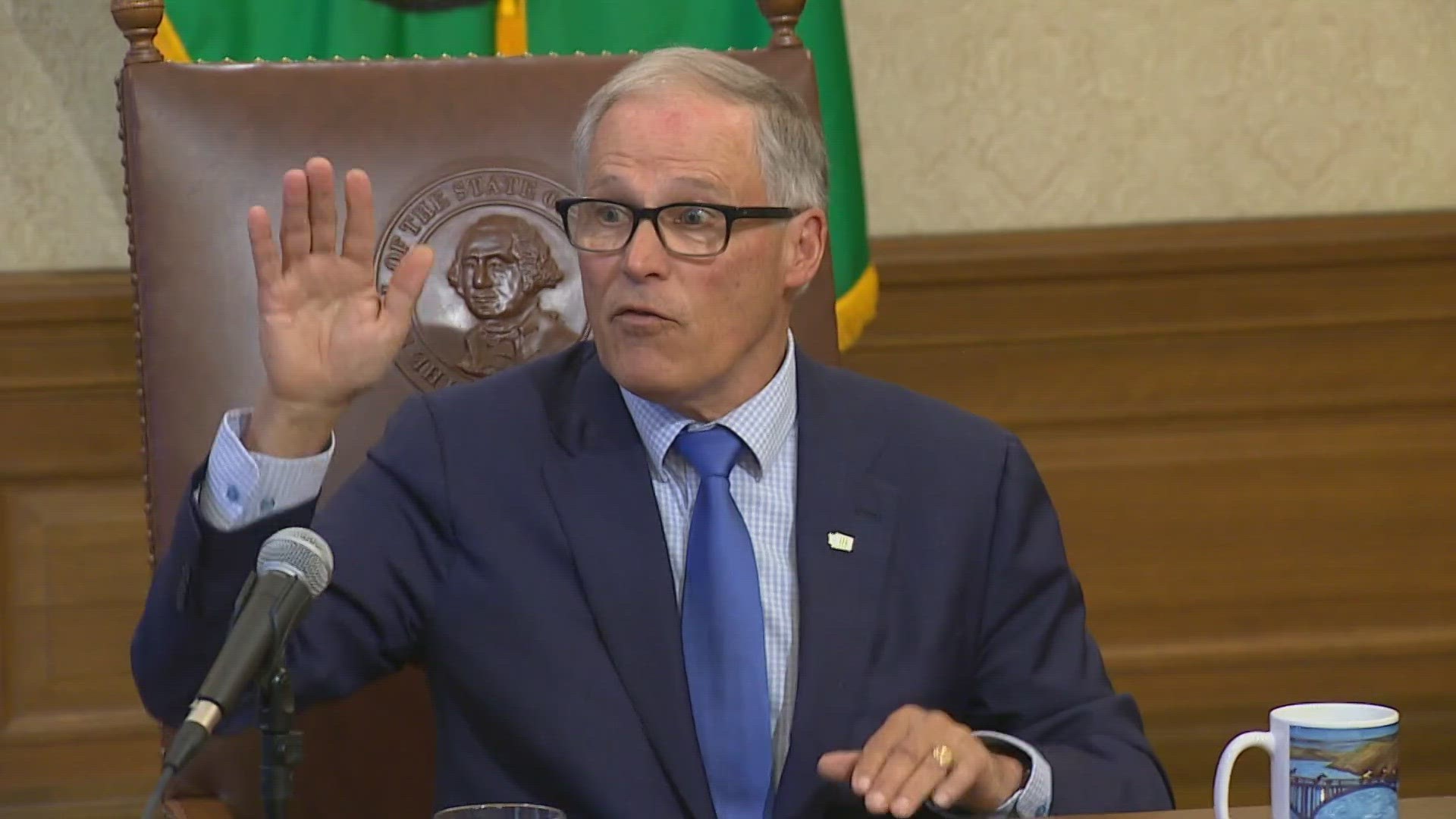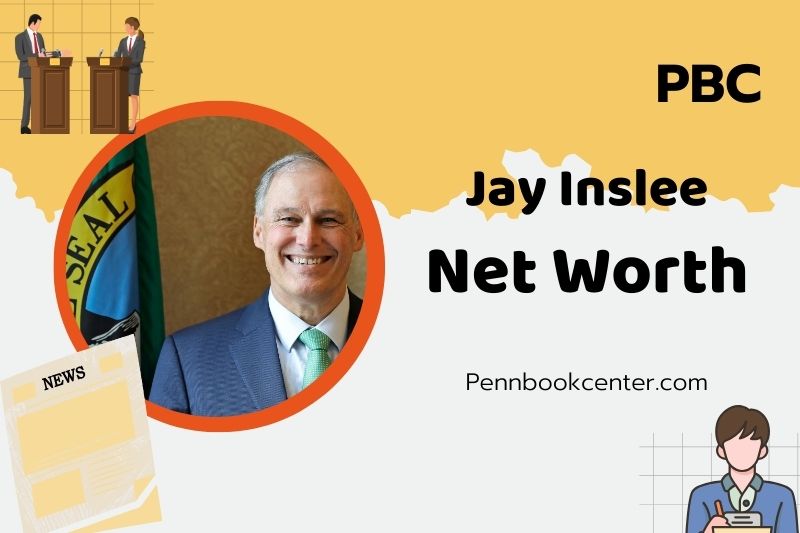What is the financial reality of a life dedicated to public service? Jay Inslee, the former Governor of Washington, presents a compelling case study in the intersection of political career and personal wealth, with estimates of his net worth offering a glimpse into the financial outcomes of a life devoted to representing the public.
From his early days navigating the Washington State government to his tenure as a U.S. Representative and, ultimately, as the 23rd Governor of Washington, Jay Inslee's career has spanned decades. This long-standing commitment to public service naturally raises questions about the financial implications of such a path. While the wealth accumulated by politicians is often scrutinized, understanding the specifics of figures like Inslee offers valuable insights into the financial realities of public service.
| Category | Details |
|---|---|
| Full Name | Jay Robert Inslee |
| Date of Birth | February 9, 1951 |
| Place of Birth | Seattle, Washington |
| Education | Bachelor's in Economics from the University of Washington, Law Degree from Willamette University College of Law |
| Political Party | Democrat |
| Key Positions Held | 23rd Governor of Washington (2013-2025), U.S. Representative (1993-1995, 1999-2012), 19th Lieutenant Governor of Washington (2001-2005) |
| 2020 Presidential Run | Candidate for the Democratic Nomination |
| Estimated Net Worth (2024) | Around $3 Million |
| Estimated Net Worth (Various Sources) | Ranges from $1 Million to $3.5 Million (depending on source and date of assessment) |
| Financial Transparency | Subject to financial disclosure requirements as a public official. |
| Primary Sources of Wealth | Public service salaries, congressional pensions, and potential investments. |
| Other Activities | Author and Lawyer |
| Family | Married to Trudi Inslee. |
| Annual Salary (as Governor) | Approximately $183,072 |
| Reference | Wikipedia - Jay Inslee |
Estimates of Inslees net worth fluctuate depending on the source and the year of assessment. Various reports place his wealth in a range, with figures like $1 million, $1.5 million, and even up to $3.5 million being cited by different sources. As of 2024, the most recent estimates generally place his net worth around $3 million. It's important to consider these figures as approximations, as they are based on publicly available information and financial disclosures.
The sources of Inslee's wealth are largely tied to his career in public service. His earnings have been derived from his various roles, including his salary as governor, income received during his time in the U.S. House of Representatives, and the benefits that come with those positions, such as congressional pensions. These sources provide a clear picture of how Inslee has accumulated his wealth over the course of his career.
It's also important to place Inslees financial standing in context. While $3 million represents a significant sum, it is relatively modest compared to the net worth of many other prominent figures in politics and business. This context is crucial in understanding the financial realities faced by public servants, especially those who dedicate their lives to government and public service. His wealth is more closely aligned with the financial averages for Americans of his age, making his situation representative of a typical American career with government benefits, rather than extraordinary wealth accumulation.
Inslee's financial journey began long before his political career took off. Born in Seattle, Washington, on February 9, 1951, he comes from a family background far from the corridors of power. His mother worked as a sales clerk at Sears, highlighting a more humble upbringing than many of his political peers. Inslees education, including a bachelors degree in economics from the University of Washington and a law degree from Willamette University College of Law, laid the groundwork for his later career as a lawyer and politician. These early experiences and educational achievements showcase the path that Inslee took before his formal political ascent began.
Inslee's career trajectory reflects a deep involvement in the Washington State government, with significant periods of service. Beginning in 1988, he began what would become a career marked by periods in Washington state government as well as the federal government. This career illustrates his long-term commitment to public service. His positions included roles such as the 19th Lieutenant Governor from 2001 to 2005, before serving as a U.S. Representative from 1993 to 1995, then again from 1999 to 2012. His time in the House of Representatives and his role as the 23rd Governor of Washington, from 2013 to 2025, showcase a career arc with a focus on Washington state and federal policy.
His roles in various levels of government indicate a career built upon policy and public administration. Inslee's commitment to public service goes beyond simply holding office; it also entails making substantial contributions to policy and governance. Inslee's career includes notable positions such as governor, and U.S. representative. His focus on policy highlights his long-term dedication to the public good.
Inslee's interest in policy and governance culminated in his campaign for the 2020 Democratic presidential nomination. He ran on a platform focusing on climate change and environmental protection, key issues that defined his political career. While his presidential bid did not result in a nomination, it underscored his ambition and commitment to bring his policy ideas to a broader national stage. His involvement in the 2020 campaign highlights his desire to shape broader national and international policy, even if unsuccessful in the nomination.
The financial side of Inslee's life is subject to public scrutiny due to financial disclosure rules for elected officials. These disclosures offer insights into his assets, investments, and potential conflicts of interest. This transparency is designed to ensure accountability and public trust, a crucial element of democratic governance. These disclosures allow the public to assess the financial interests of public officials, enhancing trust in government.
Examining the financial disclosures of Inslee and other elected officials helps highlight the financial aspects of a life devoted to public service. This financial information, including assets and investments, is available for public review, which helps in understanding the compensation and benefits of public service. These financial disclosures offer a glimpse into the economic realities of those in public office, as well as the level of transparency within a democratic system.
Comparisons with other political figures help to put Inslee's net worth in perspective. While not among the wealthiest, he embodies the financial experience of many career public servants, earning a steady income. His financial situation offers a model for many public figures, with income that may not be as high as the private sector but still gives financial stability, especially with the inclusion of benefits such as pensions. This places him on a level that is more average for public servants, rather than being indicative of great wealth.
Public service salaries, pensions, and investments are primary contributors to Inslee's wealth. This is typical for those in public service roles, with benefits forming a significant portion of their overall financial picture. Public sector employment tends to provide reliable income and benefits, including retirement plans, contributing to long-term financial stability. These sources of income provide a clear view of how public service can lead to wealth accumulation, through consistent salaries and retirement benefits.
There have been no widespread reports or controversies related to Inslee's finances. His career, including his time in various government roles, is relatively free of major financial scandals or allegations of corruption. This lack of controversy underscores the importance of ethical conduct in public service, highlighting the role of accountability in ensuring public trust. The fact that there are no major controversies reflects Inslees commitment to ethical conduct and his dedication to transparency in the role of governor.
Jay Inslee's career gives a complex view of the financial considerations for those in public service. From the early days in state government to his role as Governor of Washington, his career offers insights into the accumulation of wealth through different roles. His net worth, while modest compared to some, represents the financial results of a commitment to public service, showcasing how a life in government can result in a level of financial security.
As we assess the financial profile of Jay Inslee, his estimated net worth of around $3 million provides a window into the financial reality of his career. It reflects a career built on steady income and benefits, mainly earned through his governmental roles. His story shows how individuals who choose public service can attain financial stability without becoming excessively wealthy.


